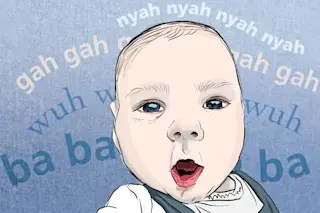The baby is a few months old. His earliest cries are short, his lungs too small to produce the prolonged wail of a toddler. A few months later, he can pull in enough air to elicit a sort of chuckle. And by 6 months, he’s trying out vowel-like sounds — wuh, wuh, wuh. Soon, he’s combining consonants and vowels and repeating them. Nyah, nyah, nyah, he says with evident glee. The baby has begun babbling, as large a developmental milestone as sitting or standing.
Nobody learns to talk without babbling, says Gordon Ramsay, director of the Spoken Communication Laboratory at the Marcus Autism Center in Atlanta. But babies at risk of developing autism babble later than the average 6 to 9 months. Speech scaffolds the entire learning process, so missing those early vocal milestones can derail a child’s cognitive development.
This device, used once a month for an entire day, ...














